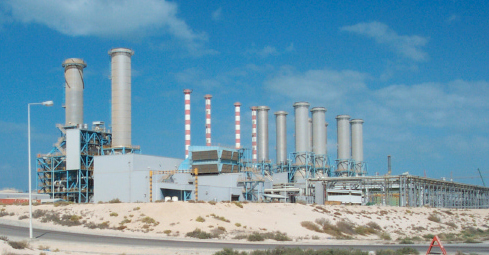Dubai water and power needs will almost double by 2011.
 Other News
Other News Subscribe to newsletter
Subscribe to newsletter
| 2 Feb 2006 |
The imminent shortage of water resources in Dubai has been compounded by the real-estate boom, with new construction projects taking a larger share of resources. "This is increasingly alarming since this region is already the driest in the world," Fady Juez, the managing director of Metito, told the first Middle East Water and Wastewater Management Conference in Dubai. "The good news is that MENA countries are sensing the need to find alternative solutions so they are able to meet the increasing demand for fresh water."

A panel of 20 international and regional speakers discussed reforming the water sectors of various MENA states. Key areas include privatization, water distribution and the long-term protection of resources that are being depleted. Over $120 billion worth of investment has been allotted to water and wastewater infrastructure in the region over the next decade, with significant expenditure by Saudi Arabia, Egypt and the UAE, said Juez, the conference chairman.
"The Gulf remains the largest market for water desalination in the world and local municipalities are seriously examining ways of looking to double existing capacity to meet regional demand," he said. "However, it is North Africa that will experience the greatest growth in desalination, Algeria and Libya experiencing a 300 per cent growth.".
Water desalination, specifically membrane processes based on reverse osmosis, is becoming more efficient as more technologically advanced methods are being developed. "The price of desalinating one cubic meter of water has come down more than a third of what it used to be 10 years ago. However, I would like to stress that water desalination may not be the only cost-effective solution for water shortage," Juez added. "Demand management, efficiency improvements and development of new sources should be a priority to decrease the costs of water.".
Dubai Property Group, a coalition of Dubai real-estate developers, hosted a separate conference of Dubai Electricity and Water Authority (DEWA) to discuss how to mediate increased water demand. DEWA expects daily water demand to reach 341 million imperial gallons per day (migd) and daily electricity needs to reach 8,513 megawatts (MW) by 2011, said a top official..
DEWA officials said annual daily peak demand for water in 2005 reached about 200 MIGD while peak demand for electricity was more than 3,500 megawatts (MW). Khaled Lootah, executive vice-president, project and engineering division and Yousef Jebril, vice-president - corporate strategy and planning at DEWA, said a portion of the rising demand for water stems from the real-estate boom in Dubai. "We estimate a substantial growth in peak water demand which will reach 341 million imperial gallons per day by the year 2011," said Khaled Lootah. .
"Our planning framework involves forecasting demand for power and water and making sure we meet that demand by constantly evaluating existing system capabilities, identifying and rectifying any deficiencies, evaluating techo-economic schemes and selecting the most optimal options then implementing on those results," said Yousef Jebril. "We estimate that electricity demand will reach 8,513 MW per day by 2011, an increase of more than 100 per cent from 2005 numbers.".
Another obstacle to effective water distribution is the inability to accurately assess future water needs, since DEWA does not receive accurate power and water demand data from developers. The lack of reliable statistics has prompted DEWA to over invest in its infrastructure or risk shortages..




